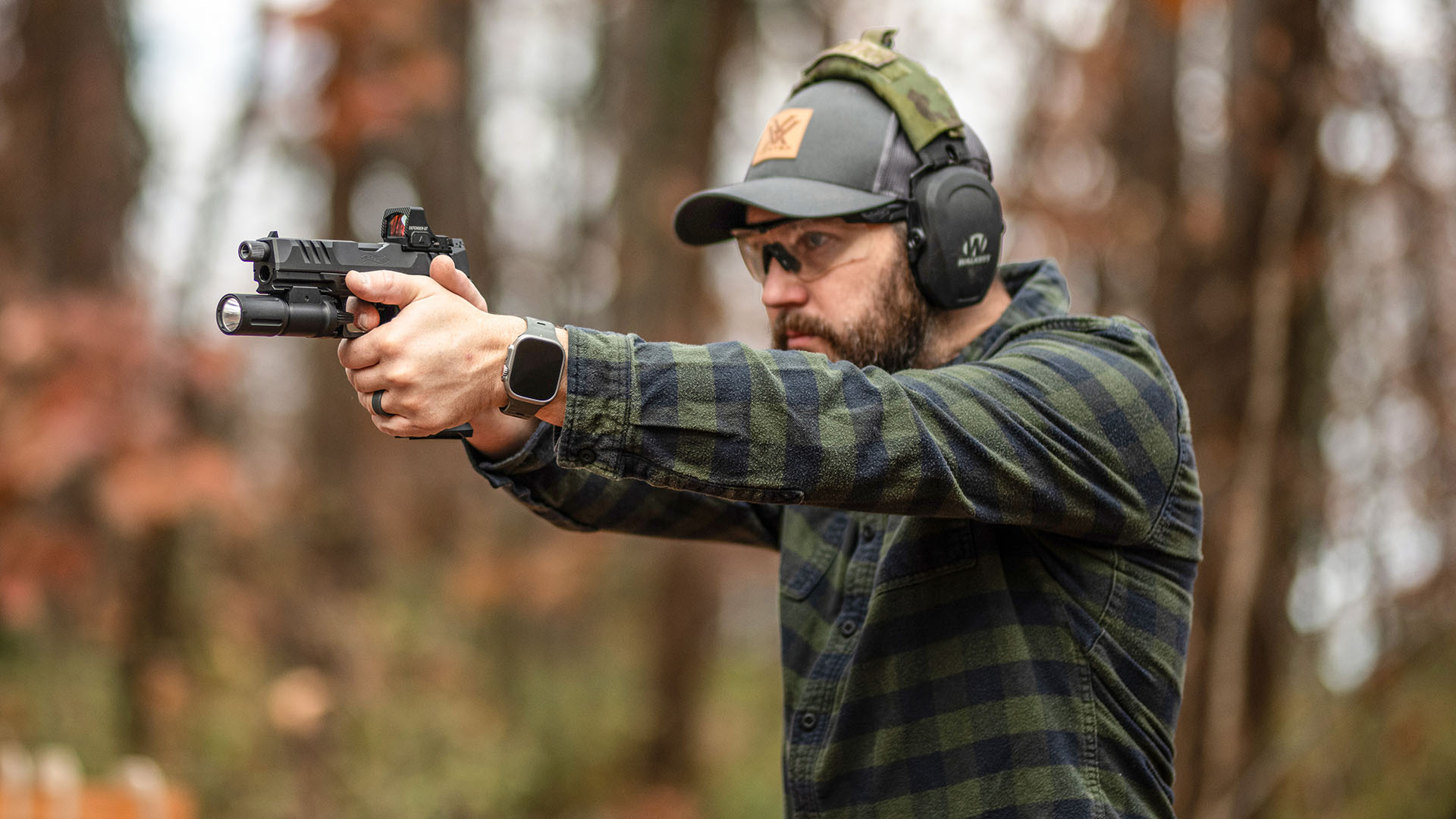A Blog for Gun Owners, By Gun Owners
It's our right to bear arms. As gun owners, it's also our responsibility to handle them safely and carefully. Regardless of the experience of the gun owner or the type of firearm, there are 4 rules all gun owners should follow to keep themselves and the people around them safe.
So, what are the 4 rules of gun safety? Without further ado, let's jump in.

The first of the 4 rules of gun safety is pretty intuitive. No matter whether you're reloading, showing it off, or handling it by yourself unloaded, never point your weapon at anything you don't intend to shoot. Instead, point it either up or down and as far away from anyone around you. This way, there's no danger of hitting anyone if there's an accidental discharge.
However, be aware of the material of the spot you're aiming at. For example, if you're on the second floor with a wooden floor, you shouldn't point your gun downwards. Likewise, if you're on cement, shooting downward could cause the bullet to ricochet. By being cautious of what you're pointing your gun at, you'll avoid stray bullets or indirect strikes.
So, what is the second of the 4 rules of gun safety?
Even if you assume your gun is unloaded, always treat a gun as though it is. That means not only practicing Rule 1 of the 4 rules of firearm safety but also keeping the action open at all times while you handle it. Be especially careful when passing a firearm to someone. Any time someone hands a gun to you, you should check the chamber, receiver, and magazine yourself to make 100% sure the gun is unloaded.
Treating your gun as though it's loaded not only prevents accidental discharge from a missed loaded gun but also builds good habits. When you handle a gun that's loaded with a full magazine of ammunition, the muscle memory of cautiously handling unloaded, open-action firearms will carry over.
Unless you're already aiming at your target, there's no reason for your finger to be on the trigger. The easiest way for a firearm to accidentally discharge is to pull the trigger without meaning to. That's why Rule 3 of the 4 rules of firearm safety is to not touch the trigger.
One easy way to follow this rule is to keep your trigger finger indexed when you pick up and hold a firearm. "Indexing" is keeping the finger pointed straight. By keeping your finger straight and pressed against the side of the receiver, you prevent any contact with the trigger at all. But just in case your finger somehow slips, if your firearm has a manual safety, keep it in the "Safe" position until you're ready to fire.
Like the previous 2 of the 4 rules of firearm safety, this rule also builds muscle memory. You may be noticing a pattern in what the 4 rules of gun safety are for: both immediate safety and healthy habits for future safety. Eventually, keeping your finger indexed and avoiding the trigger will be instinctual.
When you raise your gun and take aim, make sure you're sure of your target before you fire. If you don't know what you're shooting at, you can accidentally strike something (or, worse, someone) you didn't want to.
However, to practice Rule 4 of the 4 rules of firearm safety, you don't just need to know what and where your target is. Even hollow-point bullets can pass through your target, which means your shot has a chance of hitting whatever is behind it. You should know the effective range of your firearms, the distance and speed your rounds travel at, and the chance of an accidental ricochet.

Now that you know what the 4 rules of gun safety are, it's time to get hands-on practice. Sportsman's Outdoor Superstore has been offering high-quality guns for sale to shooters from all walks of life since 2007. Whether you're looking for a semi-auto handgun for your next CCW or a bolt-action rifle for hunting, you'll find them in stock and ready to ship from our gun store.
Want to go beyond just learning the 4 rules of firearm safety? Check out our gun blog. We're constantly updating it with tips and guides that help you become a more confident gun owner. Grow your skills and your gun collection with Sportsman's Outdoor Superstore.